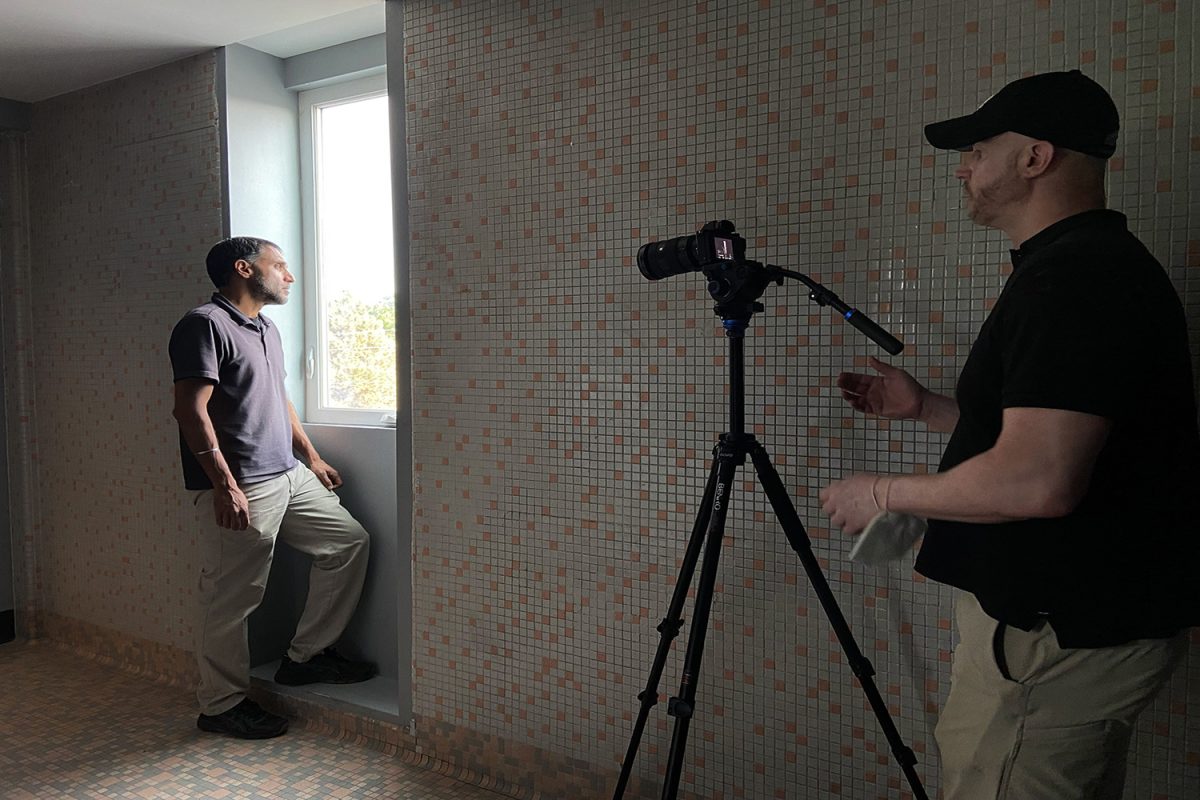Ross Taylor is a photographer, filmmaker, and educator who is currently an associate professor of journalism at the University of Colorado Boulder. In 2020, Taylor began filming Dr. P.J. Parmar as part of his latest documentary, “Mango House.”
Mango House is the largest shared space for refugees in Colorado and includes a medical and dental clinic, shops, food court, and event spaces. Through the filming process, Taylor immersed himself in the community surrounding Mango House and spent countless hours dedicated to the project.
Taylor came to Iowa City from Nov. 12-14 to visit film and photography classes and meet with students. He arrived after being invited by a professor within the journalism program and was able to share his expertise and experience. Mango House was screened at FilmScene on Nov. 14 to a full theater.
The Daily Iowan: How do you approach telling the stories of the communities you work with?
Taylor: I think people deserve, when possible, to have a documentarian spend a lot of time with them. We can have a better and more nuanced understanding of people’s conditions if we spend a fair amount of time with people. It’s easy to have stereotypes about people and perceived notions, but spending a lot of time with them helps us have a broader understanding of the spectrum of their condition, which is helpful in storytelling.
A lot of the documentary focuses on the COVID-19 pandemic and how Mango House dealt with that. Was this focus your original plan? Or did that change when the pandemic happened?
I started the film about a month before COVID hit. I was really nervous about it. I was in the doctor’s office with many people, many times, and quite often with people who would have COVID before we had the vaccine. It was hard at times, for sure. That also made everything a little bit longer, because we had to get through COVID. I wanted to make sure that I filmed people without wearing masks as refugees. And I was really careful. I wanted to make sure we saw their faces. I didn’t want to only portray them with masks on. I was worried about the concept of othering, where we would just see them as Other with a capital O.
As a professor, do the classes you teach affect your filmmaking at all?
I teach a large lecture class on Introduction to Journalism, which is really about journalism’s role in a democracy. However, I teach a range of visual journalism courses as well, and I draw on my experience and share it in the classroom when and where appropriate. Right now, I’m teaching a documentary class, which is fun.
RELATED: Directors of ‘Heretic’ discuss their careers in Hollywood after graduating from the UI
How can people in Iowa City get more involved with helping refugees and immigrant communities such as the ones shown in Mango House?
I would encourage people to find ways within their own lives that are appropriate for them to make some engagement with the refugee community. That could be a little bit, a lot, or anywhere in between. That might just mean going to a refugee-owned restaurant or maybe volunteering. And I always tell people to do what’s appropriate for them but try to get engaged and try to understand. Be aware that the refugee community represents some real talent and some fascinating and brilliant people. That community is not monolithic, but rather it harbors and mirrors our community. They are just like us; they just had to flee war.
Do you have any other projects that you’re currently working on?
I am so fond of Dr. Parmar, who runs Mango House. I was trying to find ways of still spending time in that space. I’ve been filming for over a year now on the Boy Scout troop shown in the film. It’s an all-refugee Boy Scout troop. So, it’s composed only of refugees. It’s certainly the only one of its kind in Colorado, and it’s a rarity in Scouting to have an all-refugee Scout Troop. So, we are now editing the film, and we should be done hopefully in the summer. Almost accidentally, I’ve spent years of my life involved in the refugee community, so I keep coming back to it because I’m drawn to it. It’s a fascinating space, and I feel like the refugee story should be told by many people as often as possible so people can have a better understanding of the refugee experience.



